Author Pete Seeger
Round, Round Hitler's Grave
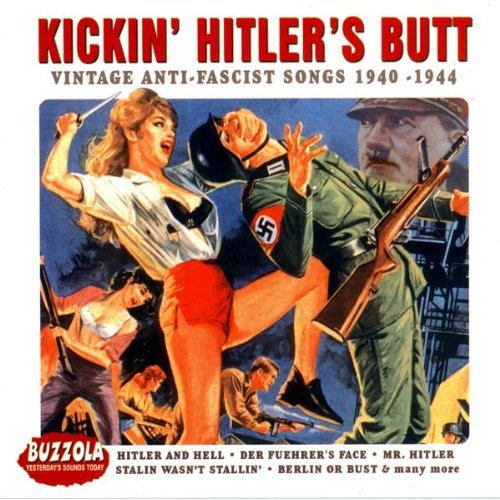
Now I wished I had a bushel
(Continues)
(Continues)
Contributed by Bartleby 2012/4/6 - 13:54
All Mixed Up
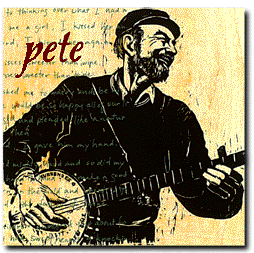
[1960, forse riscritta nel 1964]
Dall’album “Pete” del 1965.
Parole di Pete Seeger.
Sulla melodia di “Woman Tawry Lang” di Louise Simone Bennett-Coverley (1919-2006), altrimenti nota come Miss Lou, scrittrice, educatrice e studiosa di folklore giamaicana.
Dall’album “Pete” del 1965.
Parole di Pete Seeger.
Sulla melodia di “Woman Tawry Lang” di Louise Simone Bennett-Coverley (1919-2006), altrimenti nota come Miss Lou, scrittrice, educatrice e studiosa di folklore giamaicana.
You know this language that we speak,
(Continues)
(Continues)
Contributed by Bartleby 2012/1/17 - 17:01
Waist Deep In The Big Muddy

NEL GRANDE PANTANO
(Continues)
(Continues)
Contributed by Andrea Buriani 2011/10/23 - 15:25
Pastures of Plenty
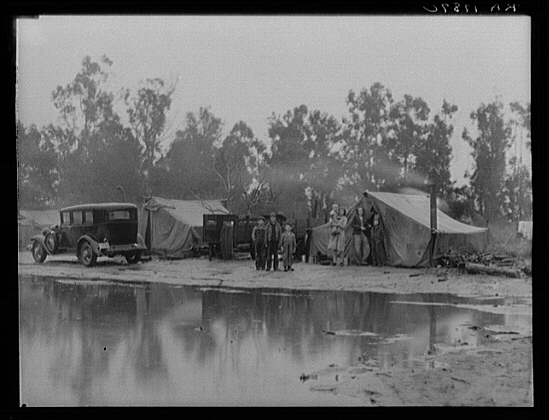
The Asch Recordings Vol. 1 (1944)
Describing the travails and dignity of migrant workers in North America, it is evocative of the world described in John Steinbeck's The Grapes of Wrath. The tune is based on the ballad "Pretty Polly," a traditional English-language folk song from the British Isles that was also well known in the Appalachian region of North America.
Recorded by Pete Seeger, Harry Belafonte, Bob Dylan, Tom Paxton, Jesse Colin Young, Peter Tevis, Peter, Paul and Mary, Dave Van Ronk, Ramblin' Jack Elliot, Flatt and Scruggs, Will Geer, Kingston Trio, Country Joe McDonald, Odetta, The Alarm, Solas, Alison Krauss & Union Station, Paul Kelly, Lila Downs, Cisco Houston, Karl Denver, Scott H. Biram, The Travellers, Judy Collins, Jefferson Starship
Il pezzo fu arrangiato da Ennio Morricone e cantato da Peter Tevis per il film "Per un pugno di dollari" di Sergio Leone. (Ma Si veda qui questa osservazione di Cristian Veronesi)
Describing the travails and dignity of migrant workers in North America, it is evocative of the world described in John Steinbeck's The Grapes of Wrath. The tune is based on the ballad "Pretty Polly," a traditional English-language folk song from the British Isles that was also well known in the Appalachian region of North America.
Recorded by Pete Seeger, Harry Belafonte, Bob Dylan, Tom Paxton, Jesse Colin Young, Peter Tevis, Peter, Paul and Mary, Dave Van Ronk, Ramblin' Jack Elliot, Flatt and Scruggs, Will Geer, Kingston Trio, Country Joe McDonald, Odetta, The Alarm, Solas, Alison Krauss & Union Station, Paul Kelly, Lila Downs, Cisco Houston, Karl Denver, Scott H. Biram, The Travellers, Judy Collins, Jefferson Starship
Il pezzo fu arrangiato da Ennio Morricone e cantato da Peter Tevis per il film "Per un pugno di dollari" di Sergio Leone. (Ma Si veda qui questa osservazione di Cristian Veronesi)
It's a mighty hard row that my poor hands have hoed
(Continues)
(Continues)
2011/9/1 - 21:45
Song Itineraries:
The War of Labour: Emigration, Immigration, Exploitation, Slavery
Crossbone Skully
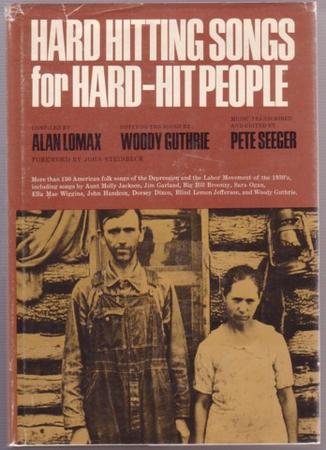
[1930s]
Sulla melodia della popolare “Cumberland Gap”
Testo trovato su Mudcat Café
Dal volume “Hard Hitting Songs for Hard-Hit People”, realizzato da Alan Lomax, Woody Guthrie e Pete Seeger tra il 1940 ed il 1967, anno della sua definitiva pubblicazione.
Probabilmente “Crossbone Skully” (quello dal teschio con le ossa incrociate) è il soprannome del disperato protagonista della canzone, sarà stato un tatuaggio o sarà stato che era ridotto tutto pelle ed ossa dalla fame…
La canzone è stata interpretata anche da Peggy Seeger con il titolo "Peacock Street".
Sulla melodia della popolare “Cumberland Gap”
Testo trovato su Mudcat Café
Dal volume “Hard Hitting Songs for Hard-Hit People”, realizzato da Alan Lomax, Woody Guthrie e Pete Seeger tra il 1940 ed il 1967, anno della sua definitiva pubblicazione.
Probabilmente “Crossbone Skully” (quello dal teschio con le ossa incrociate) è il soprannome del disperato protagonista della canzone, sarà stato un tatuaggio o sarà stato che era ridotto tutto pelle ed ossa dalla fame…
La canzone è stata interpretata anche da Peggy Seeger con il titolo "Peacock Street".
As I went walking down Peacock Street,
(Continues)
(Continues)
Contributed by Bartleby 2011/3/25 - 13:52
Two Soldiers
“Two Soldiers” è un arrangiamento che Dylan fece di “The Last Fierce Charge”, una canzone tradizionale risalente alla guerra civile americana. Fu Jerry Garcia dei Grateful Dead a farla conoscere a Dylan nella versione – già intitolata “Two Soldiers” - incisa nel 1973 da Hazel & Alice, ossia il duo composto dalle musiciste Hazel Dickens e Alice Gerrard, moglie di Mike Seeger, fratello di Pete Seeger.

Contributed by Bartleby 2010/10/19 - 11:55
God's Counting on Me, God's Counting on You

[2010]
Scritta da Pete Seeger con Lorre Wyatt.
Interpretata in duetto con Bruce Springsteen
Alla fine di luglio, il vecchio Pete Seeger ed il suo banjo hanno presentato al The City Winery di New York City una canzone nuova nuova, scritta contro la British Petroleum, responsabile del disastro ecologico che ha visto milioni di litri di petrolio riversarsi nelle acque del Golfo del Messico, al largo delle coste di Lousiana e Florida, a seguito del grave incidente sulla piattaforma di trivellazione "Deepwater Horizon".
"Sono un fan delle canzoni alla vecchia maniera che hanno un sacco di ripetizioni, come gli spiritual", ha detto il novantunenne ma sempre arzillo Pete Seeger: "Non c'è bisogno di molto per scrivere una buona canzone. Alcune delle canzoni più belle di sempre sono basate su una melodia semplicissima ripetuta molte volte".
Scritta da Pete Seeger con Lorre Wyatt.
Interpretata in duetto con Bruce Springsteen
Alla fine di luglio, il vecchio Pete Seeger ed il suo banjo hanno presentato al The City Winery di New York City una canzone nuova nuova, scritta contro la British Petroleum, responsabile del disastro ecologico che ha visto milioni di litri di petrolio riversarsi nelle acque del Golfo del Messico, al largo delle coste di Lousiana e Florida, a seguito del grave incidente sulla piattaforma di trivellazione "Deepwater Horizon".
"Sono un fan delle canzoni alla vecchia maniera che hanno un sacco di ripetizioni, come gli spiritual", ha detto il novantunenne ma sempre arzillo Pete Seeger: "Non c'è bisogno di molto per scrivere una buona canzone. Alcune delle canzoni più belle di sempre sono basate su una melodia semplicissima ripetuta molte volte".
When we look and we can see things are not what they should be
(Continues)
(Continues)
Contributed by Bartolomeo Pestalozzi 2010/8/12 - 22:07
Song Itineraries:
War on Earth
Beans in My Ears
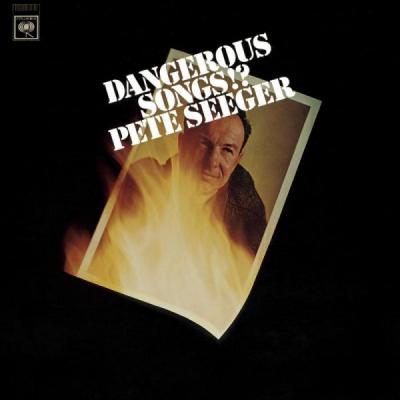
Beans in My Ears is a song created and sung by protest singer, Len Chandler. It became a hit single when covered by The Serendipity Singers, reaching #30 in June, 1964. Doctors protested that many children were actually putting beans in their ears and so it was banned in some places such as Boston. It was also covered by Lonnie Donegan in 1964.
The insistent chorus goes
The song was covered by Pete Seeger in his 1966 album Dangerous Songs!?. Seeger's version satirically attacked Lyndon B. Johnson's involvement in the Vietnam War. In addition to Chandler's original lyrics, Seeger sang that "Mrs. Jay's little son Alby" had "beans in his ears", which, as the lyrics imply, ensures that a person does not hear what is said to them. To those opposed to continuing the Vietnam War, the phrase suggested that "Alby Jay", a loose pronunciation of Johnson's nickname "LBJ", did not listen to anti-war protests as he too had "beans in his ears".
Wikipedia
The insistent chorus goes
My mommy said not to put beans in my ears, beans in my ears, beans in my ears.
The song was covered by Pete Seeger in his 1966 album Dangerous Songs!?. Seeger's version satirically attacked Lyndon B. Johnson's involvement in the Vietnam War. In addition to Chandler's original lyrics, Seeger sang that "Mrs. Jay's little son Alby" had "beans in his ears", which, as the lyrics imply, ensures that a person does not hear what is said to them. To those opposed to continuing the Vietnam War, the phrase suggested that "Alby Jay", a loose pronunciation of Johnson's nickname "LBJ", did not listen to anti-war protests as he too had "beans in his ears".
Wikipedia
My mommy said not to put beans in my ears
(Continues)
(Continues)
2010/7/2 - 00:14
Mrs. Clara Sullivan's Letter
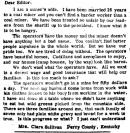
[1963]
Lyrics by Malvina Reynolds
Music by Pete Seeger
Broadside #25 aprile 1963
Una canzone ispirata alla lettera scritta nel 1963 al giornale Labor News dalla moglie di minatore di Scuddy, Perry County, Kentucky, licenziato perché sindacalizzato…
A proposito delle lotte dei minatori nel Kentucky si veda anche la trilogia di Phil Ochs costituita da No Christmas In Kentucky,Hazard, Kentucky e A Toast To Those Who Are Gone e la canzone di Tom Paxton The High Sheriff of Hazard.
Lyrics by Malvina Reynolds
Music by Pete Seeger
Broadside #25 aprile 1963
Una canzone ispirata alla lettera scritta nel 1963 al giornale Labor News dalla moglie di minatore di Scuddy, Perry County, Kentucky, licenziato perché sindacalizzato…
A proposito delle lotte dei minatori nel Kentucky si veda anche la trilogia di Phil Ochs costituita da No Christmas In Kentucky,Hazard, Kentucky e A Toast To Those Who Are Gone e la canzone di Tom Paxton The High Sheriff of Hazard.
Dear Mister Editor, if you choose please send me a copy of the 'Labor News'
(Continues)
(Continues)
Contributed by Alessandro 2010/4/28 - 15:35
Song Itineraries:
The War of Labour: Emigration, Immigration, Exploitation, Slavery
Garbage!
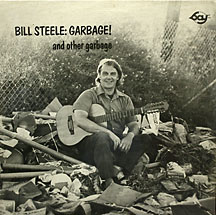
[1969]
Album “Garbage! and other garbage” (1972)
La quarta strofa fu scritta da Pete Seeger e Mike Agranoff.
Testo trovato su MySongBook
“A year before the first Earth Day observance on April 22, 1970 -- a nationwide environmental "teach-in" for 20 million participants -- folk musician Bill Steele '54 wrote one of the environmental movement's anthems: "Garbage!" Forty years on, the song still resonates as much as it did when Steele wrote it in San Francisco in 1969. "There was a big fuss in San Francisco at the time about dumping garbage in the bay, not as trash but as landfill to build new waterfront condominiums. So that sort of inspired it all," Steele says. […] The song has inspired several additional verses over the years, notably by Seeger and Mike Agranoff. Their 1977 addenda include a verse (beginning with "In Mister Thompson's factory, they're making plastic Christmas trees ...") and a new chorus, decrying the effects of corporations and capitalism.” (Fonte)
Album “Garbage! and other garbage” (1972)
La quarta strofa fu scritta da Pete Seeger e Mike Agranoff.
Testo trovato su MySongBook
“A year before the first Earth Day observance on April 22, 1970 -- a nationwide environmental "teach-in" for 20 million participants -- folk musician Bill Steele '54 wrote one of the environmental movement's anthems: "Garbage!" Forty years on, the song still resonates as much as it did when Steele wrote it in San Francisco in 1969. "There was a big fuss in San Francisco at the time about dumping garbage in the bay, not as trash but as landfill to build new waterfront condominiums. So that sort of inspired it all," Steele says. […] The song has inspired several additional verses over the years, notably by Seeger and Mike Agranoff. Their 1977 addenda include a verse (beginning with "In Mister Thompson's factory, they're making plastic Christmas trees ...") and a new chorus, decrying the effects of corporations and capitalism.” (Fonte)
Mister Thompson calls the waiter, orders steak and baked potatoes
(Continues)
(Continues)
Contributed by Alessandro 2010/4/23 - 10:51
Ding Dong Dollar

"The album 'Ding Dong Dollar' was recorded in Morris Blythman's house in Rouken Glen around 1960 and apid for by Pete Seeger who managed to get it released via Folkways... The singers, if I can remember, were: Jack O'Conner, Nigel Denver, Josh MacRae, Morris Blythman and various people in the choruses. Alastair McDonald played various instruments...."
(Jim Mclean)
(Jim Mclean)
Alessandro 2010/4/22 - 09:55
The Times I've Had
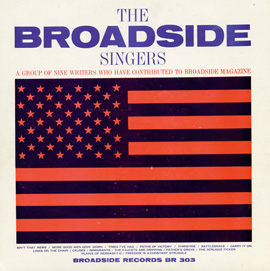
[1964]
Album “Broadside Ballads, Vol. 3: The Broadside Singers”, Folkways Records.
“The Broadside Singers” è stato un super-gruppo composto da alcuni dei songwriters che negli anni 60 e 70 furono tra i maggiori contributori della rivista “Broadside Magazine”, tra i quali Phil Ochs, Tom Paxton, Pete Seeger, Mark Spoelstra, Patrick Sky, Malvina Reynolds, Bob Dylan e Buffy Sainte-Marie…
In questo brano, l’autore Mark Spoelstra è accompagnato da Phil Ochs, voce e chitarra, e da Pete Seeger, banjo.
“This antiwar song was recorded in a Broadside Singers session with Phil Ochs leading the group. The song was written by Mark Spoelstra, who recalls this as one of his early compositions. He remembered traveling to Ohio for a concert with Rambling Jack Elliott. On the way back, they stopped for refreshments and ran across a group of young men in army fatigues talking about how they could not wait... (Continues)
Album “Broadside Ballads, Vol. 3: The Broadside Singers”, Folkways Records.
“The Broadside Singers” è stato un super-gruppo composto da alcuni dei songwriters che negli anni 60 e 70 furono tra i maggiori contributori della rivista “Broadside Magazine”, tra i quali Phil Ochs, Tom Paxton, Pete Seeger, Mark Spoelstra, Patrick Sky, Malvina Reynolds, Bob Dylan e Buffy Sainte-Marie…
In questo brano, l’autore Mark Spoelstra è accompagnato da Phil Ochs, voce e chitarra, e da Pete Seeger, banjo.
“This antiwar song was recorded in a Broadside Singers session with Phil Ochs leading the group. The song was written by Mark Spoelstra, who recalls this as one of his early compositions. He remembered traveling to Ohio for a concert with Rambling Jack Elliott. On the way back, they stopped for refreshments and ran across a group of young men in army fatigues talking about how they could not wait... (Continues)
Let me tell you 'bout the times I've had
(Continues)
(Continues)
Contributed by Alessandro 2010/4/2 - 13:35
William Moore The Mailman
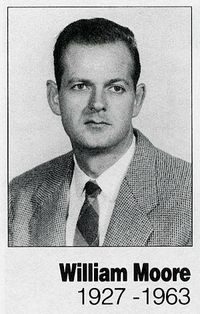
[1963]
Words by Seymour Farber
Music by Pete Seeger
Album “Broadside Ballads, Vol. 2”, Folkways Records
Sulla storia del coraggioso postino che fu ammazzato mentre camminava da solo per l’America profonda, consegnando lettere contro la segregazione razziale, si vedano anche Die Ballade von dem Briefträger William L. Moore aus Baltimore, der im Jahre 63 allein in die Südstaaten wanderte. Er protestierte gegen die Verfolgung der Neger. Er wurde erschossen nach einer Woche. Drei Kugeln trafen seine Stirn. e William Moore.
Words by Seymour Farber
Music by Pete Seeger
Album “Broadside Ballads, Vol. 2”, Folkways Records
Sulla storia del coraggioso postino che fu ammazzato mentre camminava da solo per l’America profonda, consegnando lettere contro la segregazione razziale, si vedano anche Die Ballade von dem Briefträger William L. Moore aus Baltimore, der im Jahre 63 allein in die Südstaaten wanderte. Er protestierte gegen die Verfolgung der Neger. Er wurde erschossen nach einer Woche. Drei Kugeln trafen seine Stirn. e William Moore.
William Moore you were a mailman,
(Continues)
(Continues)
Contributed by Alessandro 2010/4/2 - 11:29
I Don't Want to Have a War
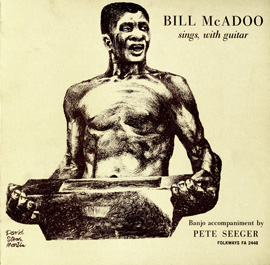
[1960]
Album "Bill McAdoo Sings with Guitar"
With Pete Seeger on banjo.
Tune: "Jumping Judy"
Bill McAdoo scrisse questa canzone subito dopo il cosiddetto "1960 U-2 incident", quando un velivolo spia statunitense Lockheed U-2 "Dragon Lady" fu abbattuto nello spazio aereo sovietico. Gli americani prima negarono l'accaduto ma furono messi molto in imbarazzo quando i sovietici mostrarono in televisione i resti dell'apparecchio e, soprattutto, il pilota Francis Gary Powers catturato sano e salvo...
I personaggi evocati nella canzone sono il dittatore spagnolo Francisco Franco, quello cubano Fulgencio Batista, quello di Taiwan e grande avversario di Mao, Chiang Kai-shek, e quello sud-coreano, anti-comunista e filo-americano, Syngman Rhee...
Album "Bill McAdoo Sings with Guitar"
With Pete Seeger on banjo.
Tune: "Jumping Judy"
Bill McAdoo scrisse questa canzone subito dopo il cosiddetto "1960 U-2 incident", quando un velivolo spia statunitense Lockheed U-2 "Dragon Lady" fu abbattuto nello spazio aereo sovietico. Gli americani prima negarono l'accaduto ma furono messi molto in imbarazzo quando i sovietici mostrarono in televisione i resti dell'apparecchio e, soprattutto, il pilota Francis Gary Powers catturato sano e salvo...
I personaggi evocati nella canzone sono il dittatore spagnolo Francisco Franco, quello cubano Fulgencio Batista, quello di Taiwan e grande avversario di Mao, Chiang Kai-shek, e quello sud-coreano, anti-comunista e filo-americano, Syngman Rhee...
I don't want to have a war,
(Continues)
(Continues)
Contributed by Alessandro 2010/3/25 - 16:11
Walk on Alabama

[1960]
Album "Bill McAdoo Sings with Guitar"
With Pete Seeger on banjo.
Canzone scritta all'epoca del famoso Montgomery Bus Boycott, quando la gente di colore cominciò a non usare più il servizio di trasporto pubblico per protesta contro la segregazione razziale. L'azienda dei trasporti locale andò immediatamente in crisi a causa dei mancati introiti.
Ad iniziare la campagna fu una donna coraggiosa, Rosa Parks, che il 1 dicembre 1955 salì su di un bus e andò semplicemente a sedersi nella parte riservata ai bianchi... Un gesto semplice che cambiò la storia.
Album "Bill McAdoo Sings with Guitar"
With Pete Seeger on banjo.
Canzone scritta all'epoca del famoso Montgomery Bus Boycott, quando la gente di colore cominciò a non usare più il servizio di trasporto pubblico per protesta contro la segregazione razziale. L'azienda dei trasporti locale andò immediatamente in crisi a causa dei mancati introiti.
Ad iniziare la campagna fu una donna coraggiosa, Rosa Parks, che il 1 dicembre 1955 salì su di un bus e andò semplicemente a sedersi nella parte riservata ai bianchi... Un gesto semplice che cambiò la storia.
You get a fine for lookin'
(Continues)
(Continues)
Contributed by Alessandro 2010/3/25 - 15:47
Song Itineraries:
Racism and Slavery in the USA
Caryl Chessman
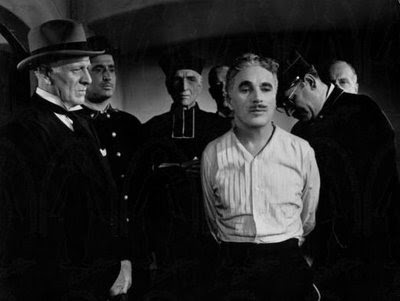
[1960]
Album "Bill McAdoo Sings with Guitar"
With Pete Seeger on banjo.
Tune: "Go Down You Murderers" di Ewan McColl, meglio conosciuta con il titolo di The Ballad Of Tim Evans.
Rinvio alla canzone Caryl Chessman di Lorenzo De Antiquis per chi volesse sapere della storia di questo personaggio, Caryl Chessman, condannato a morte nel 1948 per rapina, sequestro e stupro e "giustiziato" 12 anni dopo benchè la sua colpevolezza non fosse affatto certa e nonostante la mobilitazione in suo favore del movimento per l'abolizione della pena di morte... Mi soffermerei qui soltanto sulla terzultima e penultima strofa, quella in cui Bill McAdoo, volutamente senza entrare nel merito dell'innocenza o colpevolezza di Chessman, ricorda come nessun trafficante di armi sia mai stato mandato a morte, e così nemmeno tanti ufficiali nazisti, responsabili di crimini di guerra, che all'indomani della fine del... (Continues)
Album "Bill McAdoo Sings with Guitar"
With Pete Seeger on banjo.
Tune: "Go Down You Murderers" di Ewan McColl, meglio conosciuta con il titolo di The Ballad Of Tim Evans.
Rinvio alla canzone Caryl Chessman di Lorenzo De Antiquis per chi volesse sapere della storia di questo personaggio, Caryl Chessman, condannato a morte nel 1948 per rapina, sequestro e stupro e "giustiziato" 12 anni dopo benchè la sua colpevolezza non fosse affatto certa e nonostante la mobilitazione in suo favore del movimento per l'abolizione della pena di morte... Mi soffermerei qui soltanto sulla terzultima e penultima strofa, quella in cui Bill McAdoo, volutamente senza entrare nel merito dell'innocenza o colpevolezza di Chessman, ricorda come nessun trafficante di armi sia mai stato mandato a morte, e così nemmeno tanti ufficiali nazisti, responsabili di crimini di guerra, che all'indomani della fine del... (Continues)
Caryl Chessman was a prisoner in a California jail,
(Continues)
(Continues)
Contributed by Alessandro 2010/3/24 - 23:40
Song Itineraries:
Death penalty: murder by the power
I Don't Want No Jim Crow Coffee
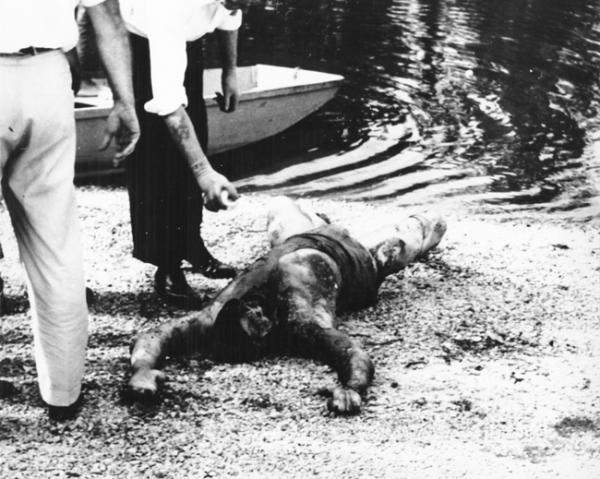
[1960]
Album "Bill McAdoo Sings with Guitar"
With Pete Seeger on banjo.
Tune: "Bald Headed Woman"
Il 1 febbraio 1960 a Greensboro, North Carolina, quattro studenti neri del locale Agricultural and Technical College entrarono in un caffè della catena Woolworth. Ezell A. Blair Jr., David Leinhail Richmond, Joseph Alfred McNeil e Franklin Eugene McCain non andarono come al solito a consumare la colazione in piedi al bancone, come era consentito alla gente di colore, ma misero i loro "culi neri" comodi comodi sui sedili riservati ai bianchi... Il gestore del bar prima fece finta di nulla, poi chiamò la polizia, che fece sloggiare i quattro "negracci"... Ma il giorno dopo di "musi neri" ce n'erano una ventina, e poi un centinaio, e poi, quattro giorni dopo, erano trecento gli studenti, neri ma anche bianchi, che si alternavano al "Greensboro Sit-in", sfidando impassibili le provocazioni... (Continues)
Album "Bill McAdoo Sings with Guitar"
With Pete Seeger on banjo.
Tune: "Bald Headed Woman"
Il 1 febbraio 1960 a Greensboro, North Carolina, quattro studenti neri del locale Agricultural and Technical College entrarono in un caffè della catena Woolworth. Ezell A. Blair Jr., David Leinhail Richmond, Joseph Alfred McNeil e Franklin Eugene McCain non andarono come al solito a consumare la colazione in piedi al bancone, come era consentito alla gente di colore, ma misero i loro "culi neri" comodi comodi sui sedili riservati ai bianchi... Il gestore del bar prima fece finta di nulla, poi chiamò la polizia, che fece sloggiare i quattro "negracci"... Ma il giorno dopo di "musi neri" ce n'erano una ventina, e poi un centinaio, e poi, quattro giorni dopo, erano trecento gli studenti, neri ma anche bianchi, che si alternavano al "Greensboro Sit-in", sfidando impassibili le provocazioni... (Continues)
I don't want no Jim Crow coffee
(Continues)
(Continues)
Contributed by Alessandro 2010/3/24 - 22:44
Ballad of Paul Robeson
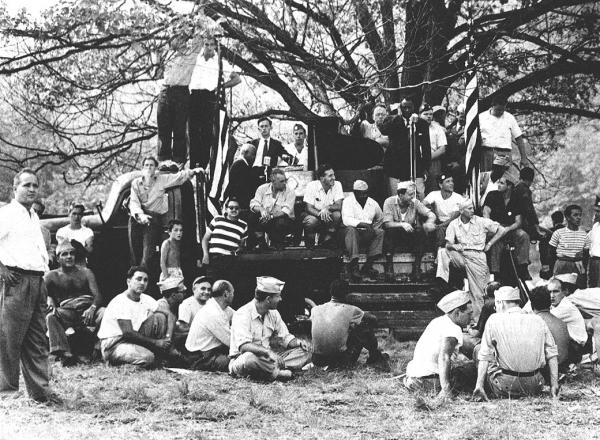
[1972]
Album "Ballads of Black America", Folkways Records.
With Pete Seeger, banjo, and Jeanne Humphries, bass.
"Paul Robeson. Born 1898 in Princeton, New Jersey. Won a scholarship to Rutgers University and was a Phi Beta Kappa honor student and All American football player. Received a law degree from Columbia University but because of his extraordinary musical talent became a leading star of opera, stage and films. Always active in civil rights, he was blacklisted from show business due to his Communist sympathies, His talents and leadership will never be forgotten." (dall'introduzione al brano contenuta nel libretto che accompagna l'album)
La canzone fa riferimento ai cosiddetti "Peekskill Riots" accaduti nell'agosto del 1949 nella contea di Westchester, New York, quando una torma di fascisti e razzisti – con l'appoggio della polizia locale - impedirono a Paul Robeson di esibirsi in... (Continues)
Album "Ballads of Black America", Folkways Records.
With Pete Seeger, banjo, and Jeanne Humphries, bass.
"Paul Robeson. Born 1898 in Princeton, New Jersey. Won a scholarship to Rutgers University and was a Phi Beta Kappa honor student and All American football player. Received a law degree from Columbia University but because of his extraordinary musical talent became a leading star of opera, stage and films. Always active in civil rights, he was blacklisted from show business due to his Communist sympathies, His talents and leadership will never be forgotten." (dall'introduzione al brano contenuta nel libretto che accompagna l'album)
La canzone fa riferimento ai cosiddetti "Peekskill Riots" accaduti nell'agosto del 1949 nella contea di Westchester, New York, quando una torma di fascisti e razzisti – con l'appoggio della polizia locale - impedirono a Paul Robeson di esibirsi in... (Continues)
Paul Robeson, dear Robeson
(Continues)
(Continues)
Contributed by Alessandro 2010/3/24 - 12:42
Song Itineraries:
Racism and Slavery in the USA
Ballad of Sojourner Truth
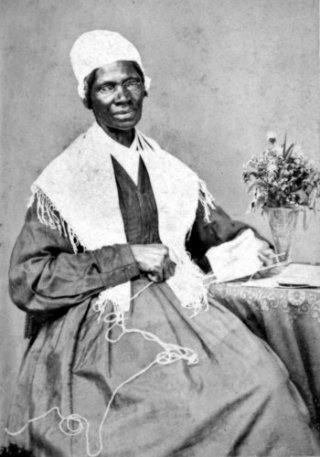
[1972]
Album "Ballads of Black America", Folkways Records.
With Pete Seeger, banjo, and Jeanne Humphries, bass.
"Born Isabella Baumfree, a slave in Ulster County, New York 1797. Inspired by God in 1843, she changed her name to Sojourner Truth and became a champion of women's rights as well as a fervent abolitionist. Known throughout the land, she helped desegregate the streetcars. Died in Battle Creek, Michigan, 1883." (dall'introduzione al brano contenuta nel libretto che accompagna l'album)
Sojourner Truth è stata un'abolizionista e proto-femminista afro-americana divenuta celebre per il discorso "Ain't I a Woman?" che ella fece durante nel 1851 durante la Women's Rights Convention ad Akron in Ohio. La canzone di Douglass Kirkpatrick riprende in gran parte i contenuti di quel discorso...
Album "Ballads of Black America", Folkways Records.
With Pete Seeger, banjo, and Jeanne Humphries, bass.
"Born Isabella Baumfree, a slave in Ulster County, New York 1797. Inspired by God in 1843, she changed her name to Sojourner Truth and became a champion of women's rights as well as a fervent abolitionist. Known throughout the land, she helped desegregate the streetcars. Died in Battle Creek, Michigan, 1883." (dall'introduzione al brano contenuta nel libretto che accompagna l'album)
Sojourner Truth è stata un'abolizionista e proto-femminista afro-americana divenuta celebre per il discorso "Ain't I a Woman?" che ella fece durante nel 1851 durante la Women's Rights Convention ad Akron in Ohio. La canzone di Douglass Kirkpatrick riprende in gran parte i contenuti di quel discorso...
I am a woman too
(Continues)
(Continues)
Contributed by Alessandro 2010/3/24 - 12:01
Song Itineraries:
Racism and Slavery in the USA
Harriet Tubman
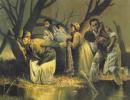
La canzone si trova incisa nel disco di Frederick Douglass Kirkpatrick intitolato "Ballads of Black America", edito dalla Folkways Records nel 1972, con Pete Seeger al banjo.
Alessandro 2010/3/24 - 11:38
Ballad of the Deacons
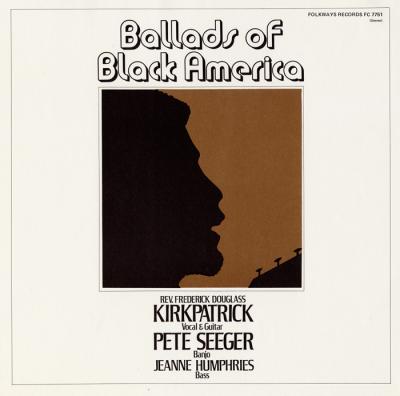
[1972]
Album "Ballads of Black America", Folkways Records.
With Pete Seeger, banjo, and Jeanne Humphries, bass.
Canzone dedicata ai "Deacons for Defense and Justice", organizzazione di autodifesa armata, antesignana delle Black Panthers, diffusasi nei primi anni 60 in alcuni Stati del sud degli USA con l'unico scopo di proteggere le comunità nere dalle continue violenze perpetrate da KKK e altri gruppi razzisti, segregazionisti e suprematisti bianchi...
"Deacons for Defense and Justice were founded in Jonesboro, Louisiana, in 1965 by a small group of local black men who secured licensed guns to defend themselves and their families. New chapters spread over the South and other ports of the country. The Deacons had the courage to stand up and defend their rights even before the better known Black Panthers. Rev. Kirkpatrick was one of this non-violent, self-defense group‘s founders." (dall'introduzione al brano contenuta nel libretto che accompagna l'album)
Si veda anche The Story of Old Monroe.
Album "Ballads of Black America", Folkways Records.
With Pete Seeger, banjo, and Jeanne Humphries, bass.
Canzone dedicata ai "Deacons for Defense and Justice", organizzazione di autodifesa armata, antesignana delle Black Panthers, diffusasi nei primi anni 60 in alcuni Stati del sud degli USA con l'unico scopo di proteggere le comunità nere dalle continue violenze perpetrate da KKK e altri gruppi razzisti, segregazionisti e suprematisti bianchi...
"Deacons for Defense and Justice were founded in Jonesboro, Louisiana, in 1965 by a small group of local black men who secured licensed guns to defend themselves and their families. New chapters spread over the South and other ports of the country. The Deacons had the courage to stand up and defend their rights even before the better known Black Panthers. Rev. Kirkpatrick was one of this non-violent, self-defense group‘s founders." (dall'introduzione al brano contenuta nel libretto che accompagna l'album)
Si veda anche The Story of Old Monroe.
ln Jonesboro Louisiana the year of nineteen sixty five,
(Continues)
(Continues)
Contributed by Alessandro 2010/3/24 - 11:28
Song Itineraries:
Racism and Slavery in the USA
Bring Them Home (If You Love Your Uncle Sam)
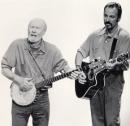
New words [1969] by Barbara Dane and GIs from Ft. Hood, 11/9/69
Album “F.T.A.! Songs et the GI Resistance”, Paredon Records 1970.
Sung by Barbara Dane with active-duty GIs.
Recorded at Fort Hood, Texas, Fort Benning, Georgia and Fort Bragg, North Carolina.
Edited by Irwin Silber.
“F.T.A.”, acronimo per lo slogan pubblicitario dell’esercito “Fun, Travel and Adventure”, durante l’invasione del Vietnam fu utilizzato nell’ambito del movimento contro la guerra con il significato di “Free The Army” o di “Fuck The Army”…
Album “F.T.A.! Songs et the GI Resistance”, Paredon Records 1970.
Sung by Barbara Dane with active-duty GIs.
Recorded at Fort Hood, Texas, Fort Benning, Georgia and Fort Bragg, North Carolina.
Edited by Irwin Silber.
“F.T.A.”, acronimo per lo slogan pubblicitario dell’esercito “Fun, Travel and Adventure”, durante l’invasione del Vietnam fu utilizzato nell’ambito del movimento contro la guerra con il significato di “Free The Army” o di “Fuck The Army”…
BRING 'EM HOME
(Continues)
(Continues)
Contributed by Alessandro 2010/3/16 - 12:07
Midnight Special
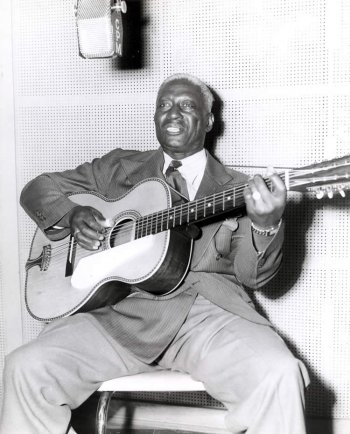
[1934]
Con canzoni come Chain Gang, Chimes Of Freedom, Folsom Prison Blues, I Shall Be Released, San Quentin e Walls Of Red Wing già presenti tra le CCG/AWS, beh, non poteva certo mancare questo classico che fu reso immortale da Leadbelly, ma la cui memoria si perde nelle roots americane più profonde.
Infatti le prime testimonianze scritte relative a questa “prison song” risalgono già ai primissimi anni del 900, e la prima incisione è del 1926 ad opera di Dave "Pistol Pete" Cutrell, il leader della formazione "McGinty's Oklahoma Cowboy Band". E bisogna anche dire che il primo nero ad incidere “Midnight Special Blues” non fu Leadbelly ma “Crying” Sam Collins nel 1929.
Ma nel 1934 John e Alan Lomax, i celebri cacciatori di folk songs, raccolsero la canzone dalla chitarra e dalla viva voce di un detenuto dell'Angola Louisiana State Prison, tale Huddie William Ledbetter, soprannominato "Lead... (Continues)
Con canzoni come Chain Gang, Chimes Of Freedom, Folsom Prison Blues, I Shall Be Released, San Quentin e Walls Of Red Wing già presenti tra le CCG/AWS, beh, non poteva certo mancare questo classico che fu reso immortale da Leadbelly, ma la cui memoria si perde nelle roots americane più profonde.
Infatti le prime testimonianze scritte relative a questa “prison song” risalgono già ai primissimi anni del 900, e la prima incisione è del 1926 ad opera di Dave "Pistol Pete" Cutrell, il leader della formazione "McGinty's Oklahoma Cowboy Band". E bisogna anche dire che il primo nero ad incidere “Midnight Special Blues” non fu Leadbelly ma “Crying” Sam Collins nel 1929.
Ma nel 1934 John e Alan Lomax, i celebri cacciatori di folk songs, raccolsero la canzone dalla chitarra e dalla viva voce di un detenuto dell'Angola Louisiana State Prison, tale Huddie William Ledbetter, soprannominato "Lead... (Continues)
Well you wake up in the morning, hear the ding dong ring,
(Continues)
(Continues)
Contributed by Alessandro 2010/2/21 - 19:53
Song Itineraries:
From World Jails
What Did You Learn In School Today?

Italian (adapted) version by Andrea Buriani
Version italienne (adaptée) par Andrea Buriani
Andrea Burianin italiankielinen versio
Version italienne (adaptée) par Andrea Buriani
Andrea Burianin italiankielinen versio
COSA HAI IMPARATO A SCUOLA?
(Continues)
(Continues)
Contributed by Andrea BURIANI 2010/1/25 - 10:12
Where Have all the Flowers Gone

ITALIANO/ITALIAN [4]
Andrea Buriani
Versione in italiano, tradotta e cantata da Andrea Buriani, alquanto fedele all'originale di Pete Seeger, almeno nelle intenzioni.
Andrea Buriani
Versione in italiano, tradotta e cantata da Andrea Buriani, alquanto fedele all'originale di Pete Seeger, almeno nelle intenzioni.
DOVE SON FINITI I FIORI
(Continues)
(Continues)
Contributed by Andrea BURIANI 2010/1/10 - 20:56
Toys For Peace
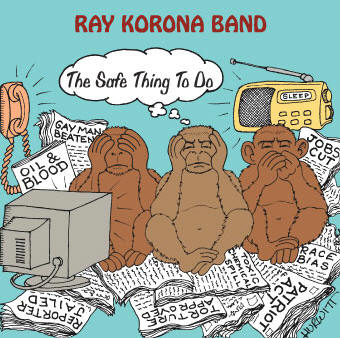
Take the turnpike through New Jersey
(Continues)
(Continues)
Contributed by adriana 2009/11/28 - 16:08
The Music Of Healing

[1995]
Album "The Heart's a Wonder”
Parole: Tommy Sands e Pete Seeger
Musica: Tommy Sands
Una canzone scritta quando in Irlanda del Nord, a metà degli anni '90, cominciò a profilarsi la speranza nella fine del conflitto e iniziarono i negoziati che poi sfociarono nell'Accordo del Venerdì Santo del 1998.
Nelle note presenti sul disco Tommy Sands ricorda anche la figura del violoncellista bosniaco Vedran Smailović che nel 1992, durante l'assedio di Sarajevo, incurante dei bombardamenti e dei cecchini, per 22 giorni suonò per strada, in pieno giorno, l'"Adagio in sol minore" di Tommaso Albinoni per onorare la memoria di 22 civili uccisi mentre facevano la coda per ricevere la razione di pane... A un giornalista che gli chiedeva se fosse pazzo a suonare sotto i bombardamenti serbi lui rispose: "Perchè non chiedi a quella gente lassù, sulle montagne, se non è pazza a bombardare Sarajevo mentre Smailović suona il suo violoncello?"
Album "The Heart's a Wonder”
Parole: Tommy Sands e Pete Seeger
Musica: Tommy Sands
Una canzone scritta quando in Irlanda del Nord, a metà degli anni '90, cominciò a profilarsi la speranza nella fine del conflitto e iniziarono i negoziati che poi sfociarono nell'Accordo del Venerdì Santo del 1998.
Nelle note presenti sul disco Tommy Sands ricorda anche la figura del violoncellista bosniaco Vedran Smailović che nel 1992, durante l'assedio di Sarajevo, incurante dei bombardamenti e dei cecchini, per 22 giorni suonò per strada, in pieno giorno, l'"Adagio in sol minore" di Tommaso Albinoni per onorare la memoria di 22 civili uccisi mentre facevano la coda per ricevere la razione di pane... A un giornalista che gli chiedeva se fosse pazzo a suonare sotto i bombardamenti serbi lui rispose: "Perchè non chiedi a quella gente lassù, sulle montagne, se non è pazza a bombardare Sarajevo mentre Smailović suona il suo violoncello?"
Ah, the heart's a wonder
(Continues)
(Continues)
Contributed by Alessandro 2009/9/18 - 18:01
Song Itineraries:
Conflicts in Ireland
Where Have all the Flowers Gone

GAELICO IRLANDESE / IRISH GAELIC (GAEILGE) / GAÉLIQUE IRLANDAIS [1]
La versione in gaelico irlandese (o irlandese, tout court) contribuita da ARZ, che desiderava vedere una versione basca della canzone: anche se con un po' di ritardo, lo accontentiamo volentieri. NB. Molti siti (tra i quali questo) riportano un'altra versione irlandese di Feargal Ó Béarra, Cá bhfuil siad uainn, scoth na mbláth?; ma risulta introvabile. Almeno per ora.
Great job !
I'd really like to see a Basque version.
And, if you're interested, this link will lead you to the Gaeilge version of the song!
A version into Irish Gaelic (or, simply, Irish) contributed by ARZ, who wished to see a Basque version of the song: we satisfy now his request with pleasure, though with some delay. Note. Several sites (this, for exemple) mention another Irish version by Feargal Ó Béarra, Cá bhfuil siad uainn, scoth na mbláth?; but we haven't found it. For the moment, insofar. [CCG/AWS Staff]
Great job !
I'd really like to see a Basque version.
And, if you're interested, this link will lead you to the Gaeilge version of the song!
A version into Irish Gaelic (or, simply, Irish) contributed by ARZ, who wished to see a Basque version of the song: we satisfy now his request with pleasure, though with some delay. Note. Several sites (this, for exemple) mention another Irish version by Feargal Ó Béarra, Cá bhfuil siad uainn, scoth na mbláth?; but we haven't found it. For the moment, insofar. [CCG/AWS Staff]
CÁ nDEACHAIGH NA BLÁTHANNA?
(Continues)
(Continues)
Contributed by ARZ 2009/7/29 - 21:13
Everybody's Got A Right To Live

Testo pubblicato su Broadside Magazine n.89 del 1968 e sul libretto del disco di Kirkpatrick e Jimmy Collier che prende il titolo dalla canzone.
EVERYBODY'S GOT A RIGHT TO LIVE
(Continues)
(Continues)
Contributed by Alessandro 2009/7/29 - 15:40
Adam The Inventor
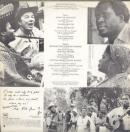
Curioso... Wolf Rilla, uno degli autori del brano, è il regista del famoso "Il villaggio dei dannati" (1960), film di science fiction dove gli abitanti di un villaggio cadono in un sonno letargico, il paese rimane come isolato da un invisibile cupola di energia e, quando tutti si svegliano, si scopre le donne sono tutte gravide, destinate a partorire dei bambini inquietanti, molto simili fra loro e dotati di poteri eccezionali... una stirpe di alieni. Molto bello. P.v.c.
Alessandro 2009/7/28 - 14:12
Teacher Uncle Ho
Words and Music by Pete Seeger (1970)
He educated all the people.
(Continues)
(Continues)
2009/7/25 - 10:19
The Story of Old Monroe
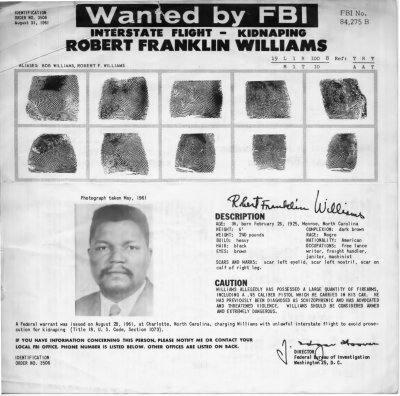
[1962]
Testo di Malvina Reynolds e di Pete Seeger, che scrisse la maggior parte delle strofe.
La melodia è quella di “Poor Ellen Smith”, ballata popolare risalente all’800.
Testo trovato su Broadside Magazine n.5 del maggio 1962.
Questa canzone è parecchio lunga, anche perché incredibile è la storia che racconta.
Monroe, North Carolina, 1958. Fuzzy Simpson e Hanover Thompson, due bambini di colore rispettivamente di sette e nove anni stanno giocando con una bambina bianca, loro coetanea. Il gioco è quello del “bacio” (sarà stato tipo ”naso in su, naso in giù, dai un bacio a chi vuoi tu” o qualcosa del genere…). La bimba dà un bacetto sulla guancia ad Hanover e poi, birbantella, corre a dirlo alla madre…. I due bambini furono arrestati dallo sceriffo locale, processati per tentato stupro e violazione delle leggi segregazioniste e condannati a stare in riformatorio fino ai 21 anni di... (Continues)
Testo di Malvina Reynolds e di Pete Seeger, che scrisse la maggior parte delle strofe.
La melodia è quella di “Poor Ellen Smith”, ballata popolare risalente all’800.
Testo trovato su Broadside Magazine n.5 del maggio 1962.
Questa canzone è parecchio lunga, anche perché incredibile è la storia che racconta.
Monroe, North Carolina, 1958. Fuzzy Simpson e Hanover Thompson, due bambini di colore rispettivamente di sette e nove anni stanno giocando con una bambina bianca, loro coetanea. Il gioco è quello del “bacio” (sarà stato tipo ”naso in su, naso in giù, dai un bacio a chi vuoi tu” o qualcosa del genere…). La bimba dà un bacetto sulla guancia ad Hanover e poi, birbantella, corre a dirlo alla madre…. I due bambini furono arrestati dallo sceriffo locale, processati per tentato stupro e violazione delle leggi segregazioniste e condannati a stare in riformatorio fino ai 21 anni di... (Continues)
Gather 'round us you Americans,
(Continues)
(Continues)
Contributed by Alessandro 2009/6/12 - 12:13
Song Itineraries:
Racism and Slavery in the USA
Ring Like a Bell
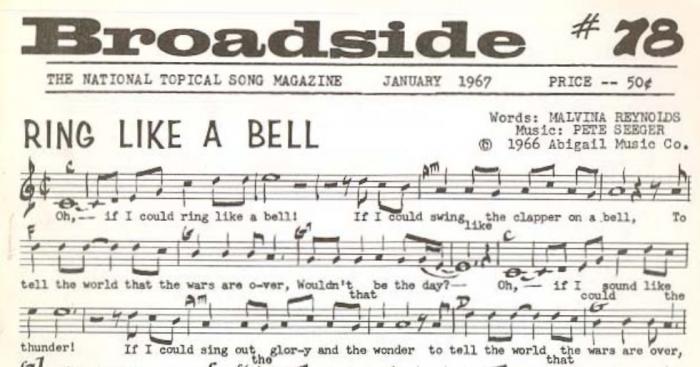
[1966]
Words by Malvina Reynolds
Music by Pete Seeger
Testo trovato su Broadside Magazine n.78 del gennaio 1967.
Words by Malvina Reynolds
Music by Pete Seeger
Testo trovato su Broadside Magazine n.78 del gennaio 1967.
Oh, if I could ring like a bell!
(Continues)
(Continues)
Contributed by Alessandro 2009/6/11 - 13:59
Black, Brown and White
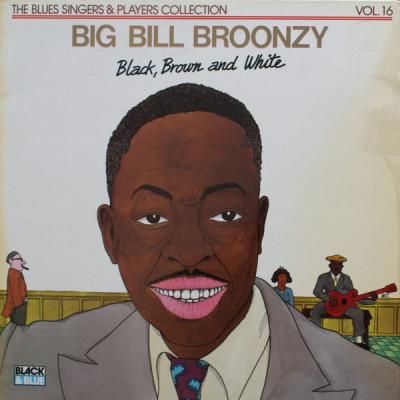
La prima incisione del brano è contenuta in "Big Bill Blues" del 1951.
Una canzone contenuta nella raccolta "Trouble In Mind" (Smithsonian Folkways, 2000) e nella colonna sonora, curata da Martin Scorsese, del film di Mike Figgis "Red, White and Blues".
Fu interpretata anche da Pete Seeger e, durante il recente insediamento di Barak Obama, alcune strofe della canzone sono state pronunciate nel discorso inaugurale rivolto al neo-presidente degli USA da un vecchio leader del movimento per i diritti civili, il rev. Joseph Lowery.
Una canzone contenuta nella raccolta "Trouble In Mind" (Smithsonian Folkways, 2000) e nella colonna sonora, curata da Martin Scorsese, del film di Mike Figgis "Red, White and Blues".
Fu interpretata anche da Pete Seeger e, durante il recente insediamento di Barak Obama, alcune strofe della canzone sono state pronunciate nel discorso inaugurale rivolto al neo-presidente degli USA da un vecchio leader del movimento per i diritti civili, il rev. Joseph Lowery.
This little song that I'm singin' about,
(Continues)
(Continues)
Contributed by Alessandro 2009/6/10 - 14:37
Song Itineraries:
Racism and Slavery in the USA
The Massacres of My Lai (Song My) and Truong An, March 1968

[1969]
Testo trovato su Broadside Magazine n.103 del 1969
Ignoro se esistano incisioni o registrazioni della canzone.
Nel marzo del 1968 i i soldati della Compagnia Charlie della 11a Brigata di Fanteria Leggera dell’esercito USA, al comando degli ufficiali Calley e Medina, rasero al suolo il villaggio di My Lai nel nord Vietnam, trucidando 350 civili inermi.
Il massacro di My Lai, che i vertici militari americani avrebbe voluto insabbiare (e l’allora rampante maggiore Colin Powell lavorò alacremente in questo senso), venne invece denunciato all’opinione pubblica mondiale grazie alle testimonianze di alcuni militari, come l’elicotterista Hugh Thompson, che si erano opposti alla mattanza e grazie all’inchiesta del giornalista indipendente Seymour Hersh.
My Lai, Song My, Son My, Truong An… sono probabilmente nomi per indicare la stessa località e lo stesso massacro…
Ma quanti massacri... (Continues)
Testo trovato su Broadside Magazine n.103 del 1969
Ignoro se esistano incisioni o registrazioni della canzone.
Nel marzo del 1968 i i soldati della Compagnia Charlie della 11a Brigata di Fanteria Leggera dell’esercito USA, al comando degli ufficiali Calley e Medina, rasero al suolo il villaggio di My Lai nel nord Vietnam, trucidando 350 civili inermi.
Il massacro di My Lai, che i vertici militari americani avrebbe voluto insabbiare (e l’allora rampante maggiore Colin Powell lavorò alacremente in questo senso), venne invece denunciato all’opinione pubblica mondiale grazie alle testimonianze di alcuni militari, come l’elicotterista Hugh Thompson, che si erano opposti alla mattanza e grazie all’inchiesta del giornalista indipendente Seymour Hersh.
My Lai, Song My, Son My, Truong An… sono probabilmente nomi per indicare la stessa località e lo stesso massacro…
Ma quanti massacri... (Continues)
We went out of mission, we were told “search and destroy”,
(Continues)
(Continues)
Contributed by Alessandro 2009/6/8 - 09:21
My Name Is Lisa Kalvelage
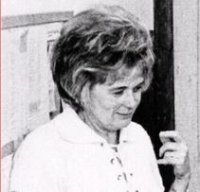
Long-time peace activist Lisa Kalvelage passed away on March 8 [2009]. She was active at the San Jose Peace Center and in Women's International League for Peace & Freedom for many years. In 1966, along with three other WILPF members, Lisa engaged in an act of civil disobedience against the Vietnam War which was commemorated in a song by Pete Seeger.
San Jose Peace & Justice Center
San Jose Peace & Justice Center
2009/5/17 - 23:34
Big Joe Blues
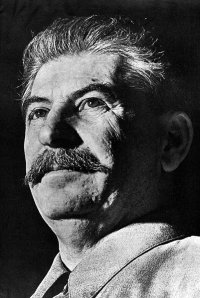
(2007)
Pete Seeger le canta a Stalin. A 88 anni ha scritto la sua prima canzone contro le efferatezze del regime sovietico. Alla sua età si possono ancora avere dei ripensamenti. Seeger è l' insuperato profeta della musica folk, il cantore dei diritti civili, che ha sparso in tutto il mondo i versi di We shall overcome e Guantanamera, e a cui recentemente Springsteen ha dedicato il suo disco intitolato Seeger sessions, sperando di risvegliare nel suo nome i vecchi ideali su cui è cresciuta la nazione americana. Tutto inizia da una polemica montata da un suo vecchio discepolo, Ron Radish («Negli anni Cinquanta avevo imparato da lui a suonare il banjo» racconta, «due dollari per tre ore di lezione») che lo ha criticato per non aver a suo tempo preso le distanze dal regime sovietico, di battersi per la libertà e la giustizia sociale e poi di non accorgersi dei crimini commessi in nome del comunismo.... (Continues)
Pete Seeger le canta a Stalin. A 88 anni ha scritto la sua prima canzone contro le efferatezze del regime sovietico. Alla sua età si possono ancora avere dei ripensamenti. Seeger è l' insuperato profeta della musica folk, il cantore dei diritti civili, che ha sparso in tutto il mondo i versi di We shall overcome e Guantanamera, e a cui recentemente Springsteen ha dedicato il suo disco intitolato Seeger sessions, sperando di risvegliare nel suo nome i vecchi ideali su cui è cresciuta la nazione americana. Tutto inizia da una polemica montata da un suo vecchio discepolo, Ron Radish («Negli anni Cinquanta avevo imparato da lui a suonare il banjo» racconta, «due dollari per tre ore di lezione») che lo ha criticato per non aver a suo tempo preso le distanze dal regime sovietico, di battersi per la libertà e la giustizia sociale e poi di non accorgersi dei crimini commessi in nome del comunismo.... (Continues)
I'm singing about old Joe, cruel Joe,
(Continues)
(Continues)
2009/4/12 - 00:55
×
![]()

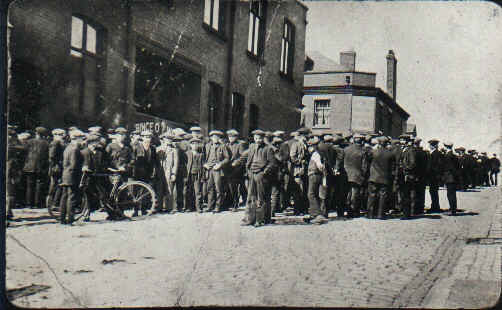
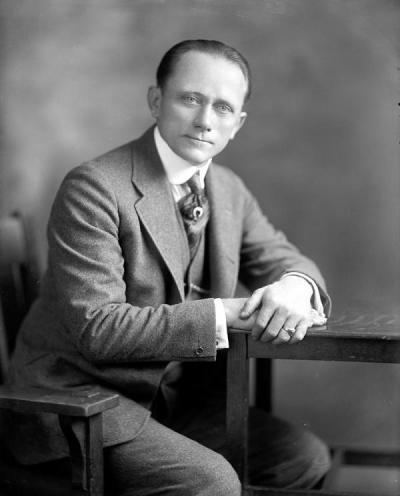
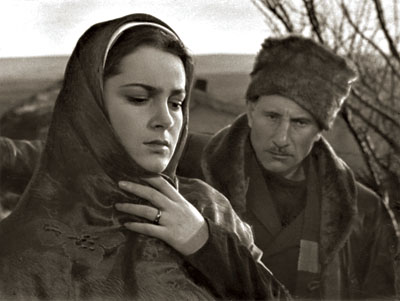
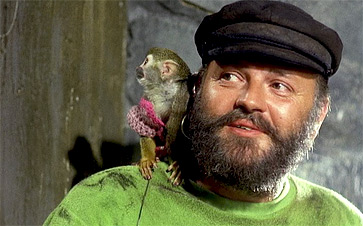
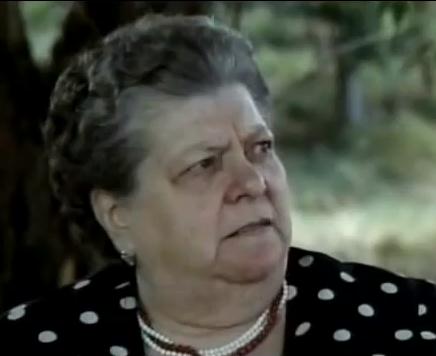

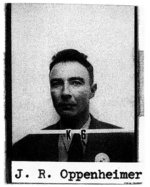
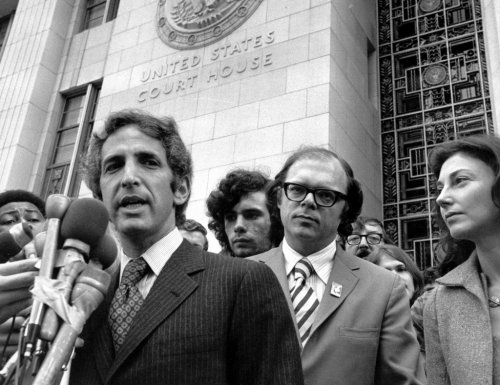
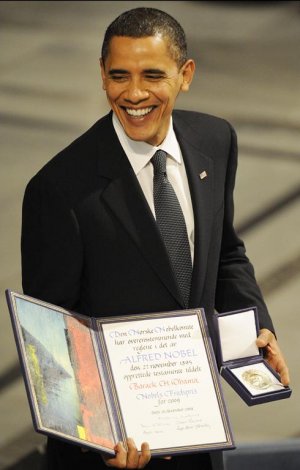
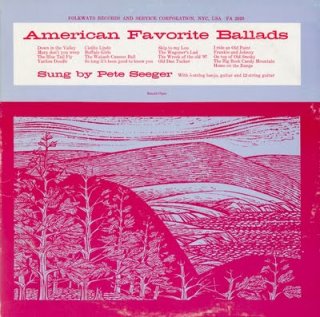

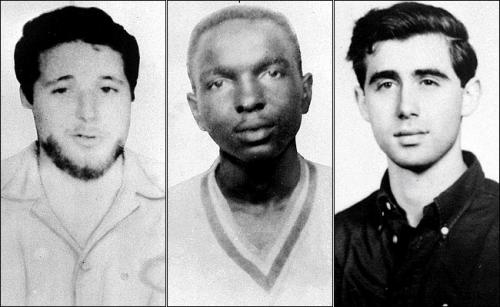
Scritta da Woody Guthrie, Millard Lampell e Pete Seeger
Sulla melodia della popolare “Old Joe Clark”
Testo trovato su WoodyGuthrie.de,
La maggior parte del testo fu scritta da Pete Seeger. Di Guthrie certamente la strofa dedicata a Mussolini…
Nell’album “Dear Mr. President”.
Poi anche nella compilation intitolata “Kickin' Hitler's Butt: Vintage Anti-Fascist Songs 1940-1944”
Dedicata a “X Mas” (che non sta per “Natale” ma per “Decima Mas”), un tizio alquanto confuso che per brevissimo tempo è apparso su queste pagine salvo poi tornarsene per sempre a casa (Pound) con la coda tra le gambe… Auguri! Spero che tu guarisca presto!